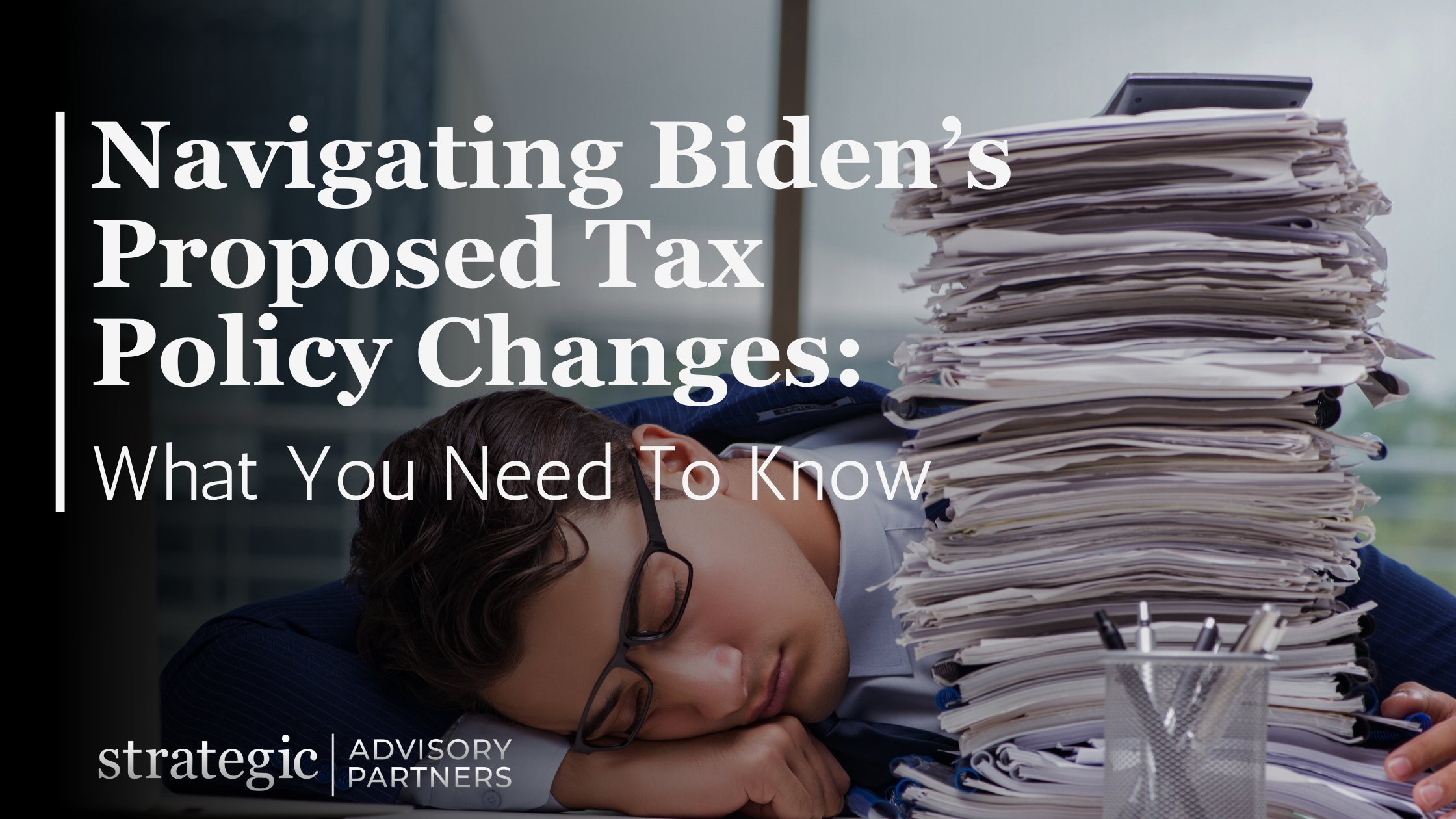
As the political landscape evolves, so too do the policies that shape our financial future. Under the Biden administration, significant tax-policy changes are on the horizon, prompting individuals and households to assess the potential implications on their financial well-being. From adjustments in inheritance taxes to shifts in capital gains and corporate tax rates, understanding these proposed changes is paramount in making informed decisions.
Here are five policy changes you need to know about.
1. Inheritance Taxes
Under current tax policy, when an individual passes away – known as the decedent – and they own assets (for example, a portfolio of stocks or a house) those assets can be passed to a predetermined beneficiary. The decedent may have owned those assets for some time and the assets may now be worth more than what was paid.
When the assets move to the beneficiary, any gains the decedent may have (the difference between what was paid and what it is now worth) is treated as if what the beneficiary “paid” for it is the value as of the decedent’s date of passing. This is known as a “step up in basis.” One of the proposed changes is that the assets would now be taxed when the decedent passes.
This policy change would be significant. The National Association of Plan Advisors (NAPA) estimates $72.6 trillion in assets will be passed down to heirs by 2045. That enormous asset transfer would be subject to capital gains taxes immediately – and would represent a significant reduction in assets passed to heirs.
2. Medicare Tax
Under current tax laws, individuals who work as employees pay a 6.2% tax for Social Security and a 1.45% tax for Medicare. The employers also have to match each of these taxes, so the total is actually 12.4% for Social Security and 2.9% for Medicare. Individuals that are self-employed are required to pay the total amounts.
Additionally, households that are married and file taxes jointly – with a modified adjusted gross income over $250,000 – pay a 3.8% Medicare surtax.
One current proposal from the Biden administration is to raise the Medicare surtax to 5% for households with a modified adjusted gross income of $400,000 or higher.
3. Capital Gains
Current tax laws allow individuals to access a lower tax rate for assets that they own for more than one year (known as long-term capital gains). If someone owned shares of a company that they paid $100 for, and then one year and a day later the individual sold those shares for $150, they would qualify for a long-term capital gain tax of either 0%, 15%, or 20% – depending on household income.
The new proposal from the Biden administration would require that the long-term capital gains tax would be at least equal to the current tax rate of an individual. That would mean if an individual already pays a 25% income tax rate, then their long-term capital gains rate would now be at least 25%.
4. Income Tax
The highest federal income tax rate in the United States is currently 37%. The new proposal would raise this rate to 39.7% for households making $400,000 or more.
5. Corporate Taxes
The new proposal would raise the top corporate tax rates from 21% to 28% and would more than double the tax companies pay from foreign earnings from 10.5% to 21%.
In addition to these specific policy changes there are less specific suggestions that would raise inheritance taxes, eliminate “like-kind exchanges” in real estate, eliminate tax incentives for oil and gas companies, increase the child tax credit, and more.
It is important that individuals understand these potential changes and consider the impact they could have. An individual planning to leave, or receive, any assets as an inheritance would both face a significant change in how the amount of assets that could be handed down. Higher income earners could see significant increases in the tax rates they pay between a rise in the income tax, the change in long-term capital gains tax policy, and the higher Medicare surtax.
While these policies are still just proposed legislation, the impact to individuals and families will not only be felt in their immediate finances but also their estate planning goals.

Chris Harris
Financial Advisor
PhD Finance
Helping professionals and families navigate the intricate path toward a financially secure future.
Get In Touch

3817 Lawndale Dr. Suite D1
Greensboro, NC 27410
(336) 790-2560
info@StrategicAdvisoryPartners.com
